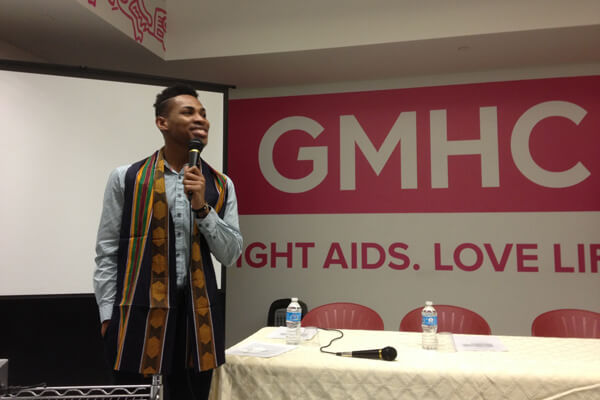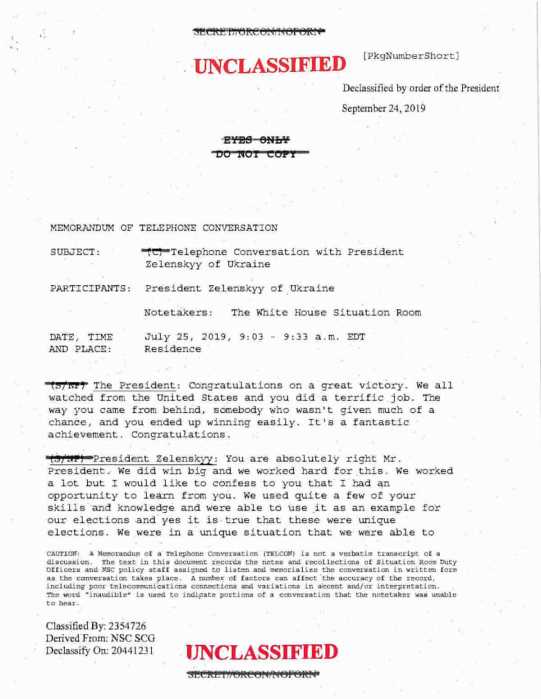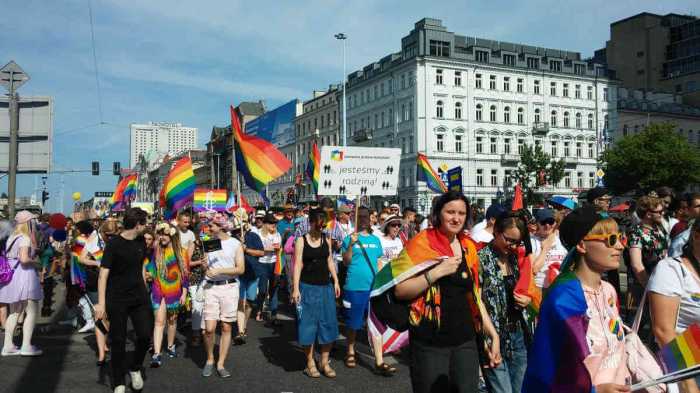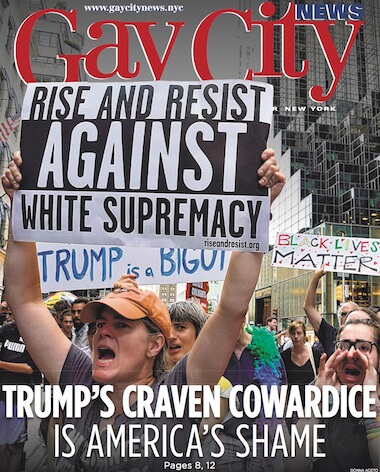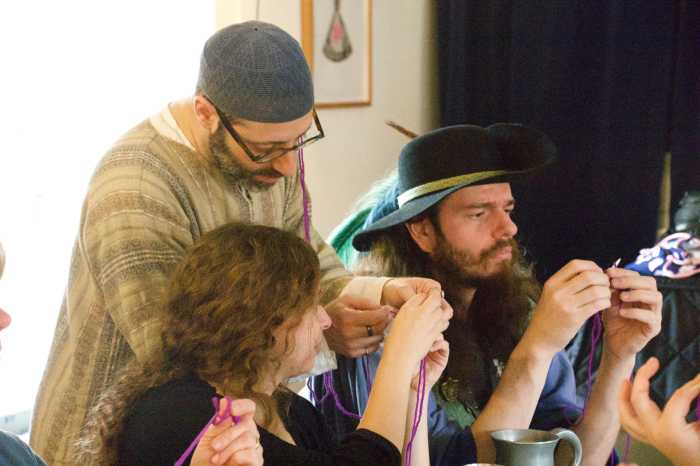Oliver Anene, a gay Nigerian who now lives in New York, moderated the January 28 panel held at Gay Men’s Health Crisis. | KELLY COGSWELL
It’s been one year since an anti-gay bill passed in Nigeria banning same-sex marriages that nobody was lobbying for. Membership in LGBT groups was also criminalized, along with any display of homo affection, making a handshake as dangerous as a handjob. The law goes even further, requiring citizens to report such things to the cops or face a decade or so in jail, just like the queers.
So far, the general population has been happy to help rid Nigeria of these disgusting un-Nigerians, especially gay men. It seems like every day they’re picked up for no good reason and charged, often at the behest of their neighbors. Just last week, the Sharia police in the north detained a dozen men at a birthday party, claiming it was actually a gay wedding and that they had arrested the “bride.”
At this point, gay men with HIV would rather risk dying of AIDS than go anywhere near the clinics that provide their ARV drugs but leave them vulnerable to stigmatization, blackmail, beatings, and the lynch mob. Unsurprisingly, new infections are climbing. And those with the means flee the country altogether.
On January 28, I went to an event organized by the Nigerian LGBT community in New York City. A panel discussion was accompanied by a screening of the 2013 documentary “Veil of Silence,” which Habeeb Lawal started shooting while the law was still in draft form and some legislators were advocating the death penalty for same-sex acts instead of a mere 14 years in jail. Lawal alternated footage of gay men talking about their lives with that of politicians in half-empty chambers inveighing against the degeneracy and foreignness of homosexuals. Which is kind of ironic, considering that this anti-gay pogrom owes so much to American preachers bearing money and hate.
Nigeria’s garden variety homophobia became especially toxic after visits to Africa from the likes of Reverend Rick Warren in 2008, who compared homosexuality to pedophilia. The hate was thoroughly institutionalized by 2009, when evangelists Scott Lively, Caleb Lee Brundidge, and Don Schmierer headlined a conference uncovering the horrors of the “gay agenda” for a mesmerized audience terrified at queers hellbent on recruiting their children.
Many Nigerians clearly believe the propaganda. In the movie, one gay man described being asked by his mother if he knew any white people. She was sure he had caught his gayness from them, like a case of the clap. Politicians may spread the lies for more cynical reasons. From Russia to Cuba to Zimbabwe, there’s a long history of governments using the homosexual menace to distract everybody from the problems du jour.
In Nigeria’s case, the motivation is all about how the rich get richer and the poor get poorer, as well as the thin grip the government has on power, especially in the north. The Islamist Boko Haram now controls large territories, kidnapping girls and slaughtering whole villages. Human Rights Watch warns the group may entirely derail the upcoming presidential election.
As the situation in the north deteriorates, international organizations may have some leverage to improve the situation of LGBT people. Clifton Cortex from the United Nations Development Programme reported that they were already pressuring Nigeria to comply with the human rights treaties it has signed, not to mention its own constitution. Even so, he didn’t seem to see any breakthroughs on the horizon.
In the meantime, Marie de Cenival, from the Heartland Alliance, described how international organizations like hers were scrambling to find new terminology that would allow them to serve gay men without calling them that — or even hinting at it. Identifying them as Men Who Have Sex With Men was now almost as bad as calling them gay. One day it was “target” clients, on another they were part of the “at-risk population.” Which could be anybody, really, from sex workers to housewives.
Thierry A. Ekon, a Togo native and researcher on HIV/ AIDS in the African communities in New York, reported on the depressing statistics among Nigerians since the law passed — the elevated rates of HIV transmission, its late detection, and how only one or two percent of those infected said it had to do with homo sex, the rest claiming to have no idea how they got it.
Olumide Makanjuola, from Solidarity Alliance Nigeria, pleaded for help. The very idea that the 12 men detained were actually trying to hold a wedding was laughable: “We wouldn’t dare.” The panel included several other members, but nobody really offered solutions, beyond supporting LGBT Nigerians who end up in New York.
That is the least we can do. We also have to pay attention, keep the problem visible, and support the queers who are working on it. And we need to help them flee when it gets too dangerous and exile seems like the best solution, at least for a while. Oliver Anene, the gay Nigerian moderating the panel, was quick to point out that it was temporary. “We want to go home,” he said.
Kelly Cogswell is the author of “Eating Fire: My Life as a Lesbian Avenger,” published last year by the University of Minnesota Press.

